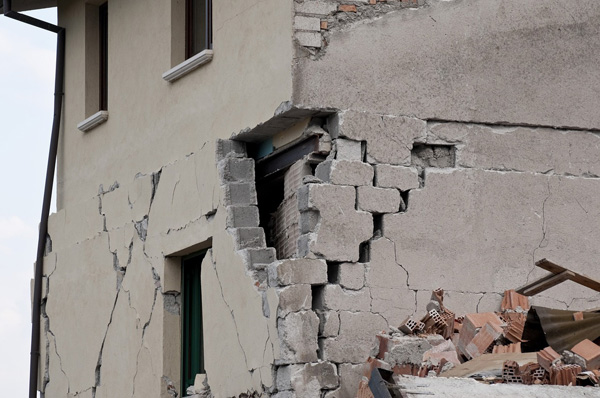A 4.8 magnitude earthquake strikes the New York City region

[Earthquake. Photo Credit to Pixabay]
On April 5th, a 4.8 magnitude earthquake struck the New York City region, from New York City to Maine, which is the third-largest earthquake to occur in the last five decades.
Almost millions of citizens of NYC felt the extreme shaking during the earthquake.
Even New Jersey, which experienced its strongest earthquake in more than 240 years, was impacted by the earthquake as the epicenter was in Tewksbury, located in the center of New Jersey.
Fortunately, there were no reported injuries or damages to buildings.
The earthquake affected the air and train travel, especially in the Northeastern United States.
Some flights to New York, Kennedy, Philadelphia, and Newark were initially delayed due to air traffic congestion.
In fact, air traffic control at Newark Liberty Airport was evacuated, resulting in flight cancellations and delays.
At the same time, train services slowed down, but were restored after a few hours.
Considering the aftershock pattern for earthquakes of different magnitudes, for earthquakes at level 3, there are typically 100 aftershocks, but earthquakes exceeding a magnitude of 4 may not follow this pattern.
Therefore, according to USGS geophysicist Paul Caruso, the duration of aftershocks cannot be predicted.
Caruso stated, “We can’t predict how long aftershocks will last or when they will happen. They will happen for weeks or even months.”
The pattern of large scale earthquakes happen frequently in real life.
In September 2023, a deadly earthquake with a magnitude of 6.8 struck Morocco, resulting in the deaths of approximately 2,800 victims.
Although the earthquake in NYC didn’t have any victims, it raises concerns globally, as more countries are experiencing earthquakes that break records set decades or even centuries ago.
The main reason for these frequent earthquakes is the phenomenon of sudden movement of faults within the Earth’s crust.
There are no direct human causes of earthquakes, such as climate change, but many scientists and researchers speculate that climate change could impact seismic activity in the near future as extreme climate events may influence tectonic plate movement.
Earthquakes are natural phenomena beyond human control.
The only possible option is to understand how to protect oneself during earthquakes, such as moving to open areas to avoid falling debris or taking cover under heavy furniture to prevent injuries.
Although earthquakes are not directly influenced by climate change or human activities, many natural disasters, such as pollution and floods, are sometimes aggravated by climate change.
To prevent the worst effects of climate change, developed countries like the United States strive to achieve sustainable development goals by 2030 with cooperation with other countries.

- Dongha Kim / Grade 11
- Branksome Hall Asia

![THE HERALD STUDENT REPORTERS [US]](/assets/images/logo_student_us.png)
![THE HERALD STUDENT REPORTERS [Canada]](/assets/images/logo_student_ca.png)
